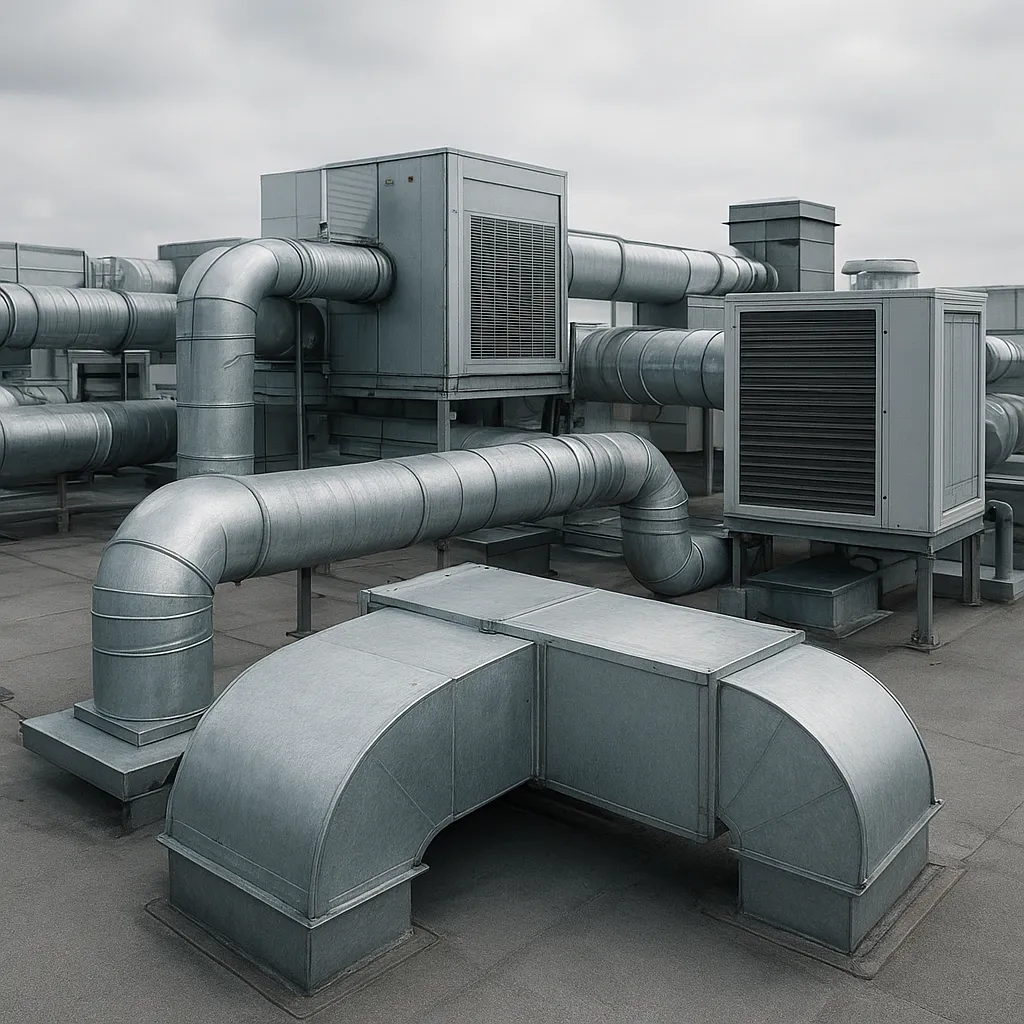
What's the best hvac system for homes
What's the best hvac system for homes
At AC Titan, we understand that choosing the best HVAC system for your home is crucial. It impacts your comfort, energy bills, and environmental footprint. Our mission is to provide efficient and affordable solutions with outstanding customer care, ensuring comfort, safety, and reliability for every client.
With various options available, making the right choice can be daunting. Each system type offers unique benefits and drawbacks. Understanding these differences is key to selecting the ideal system, aligning with our vision of becoming the top HVAC service provider in our region through innovative solutions and expert knowledge.

Understanding HVAC Systems: The Basics
HVAC stands for Heating, Ventilation, and Air Conditioning. These systems regulate indoor temperature and air quality.
Their primary components include heaters, air conditioners, and ventilation ducts. Each element works together to maintain a comfortable environment.
Key features to consider in HVAC systems are:
Energy efficiency
System capacity
Climate adaptability
Different systems suit different homes and climates. Knowing the basics helps you choose wisely. Understanding these aspects aids in selecting a system that meets your specific needs.

Types of HVAC Systems for Homes
Choosing the best HVAC system for homes depends on several factors. Each type offers unique features and benefits.
Understanding system types helps homeowners make informed choices. Here are the most common HVAC systems:
Central Air Conditioning and Heating
Ductless Mini-Split Systems
Heat Pumps
Geothermal Systems
Evaluate each type for its efficiency and installation requirements.
Climate and home design play significant roles in your decision. Consider these when exploring options for your home's HVAC system.

Central Air Conditioning and Heating
Central air systems are popular and common. They use ducts to distribute air throughout a home.
These systems efficiently cool or heat large spaces. Installation can be costly, especially if ductwork is needed. Consider central systems for consistent climate control across larger homes.
Ductless Mini-Split Systems
Ductless mini-splits are versatile solutions for various climates. They consist of an outdoor compressor and indoor units.
Ideal for homes without ducts, these systems allow temperature control in individual rooms. Their installation is simpler, making them a cost-effective option. Mini-splits offer flexible and customized comfort solutions.
Heat Pumps
Heat pumps are efficient and eco-friendly. They transfer heat rather than generate it.
These systems work well in moderate climates, providing both heating and cooling. They use less energy compared to traditional systems. Heat pumps can be a sustainable choice for energy-conscious homeowners.
Geothermal Systems
Geothermal systems utilize underground heat for energy. They are highly efficient but require significant installation.
These systems offer low operating costs and reduce environmental impact. Ideal for eco-friendly homes, geothermal systems provide reliable heating and cooling. Their initial investment is offset by long-term savings.
Key Factors to Consider When Choosing the Best HVAC System
Selecting the best HVAC system requires careful thought. Each home is unique in its needs.
Begin by evaluating your home's size and layout. These aspects influence system efficiency and performance.
Consider climate and regional weather patterns. The right HVAC system should efficiently handle your area's seasonal demands.
Here are key considerations for choosing an HVAC system:
Energy efficiency and SEER ratings
System type and suitability
Initial cost vs. long-term savings
Installation and maintenance requirements
Consult with HVAC professionals. Their expertise ensures you make an informed decision.
Proper insulation and sealing also play roles in system efficiency. A well-insulated home maximizes HVAC performance.
Energy Efficiency: Why It Matters
Energy efficiency is crucial when selecting an HVAC system. It impacts both your bills and the environment.
Efficient systems use less energy to heat or cool your home. This leads to significant cost savings over time.
Moreover, energy-efficient systems reduce your carbon footprint. This contributes to a healthier planet.
Consider these aspects when evaluating energy efficiency:
SEER Ratings: Higher ratings mean better efficiency.
Smart Thermostats: They optimize energy usage.
Variable Speed Compressors: Enhance performance and lower consumption.
Upgrading to an energy-efficient HVAC system offers long-term benefits. It aligns with environmental goals and reduces utility costs.Sizing and Installation: Getting It Right
Choosing the right size HVAC system is essential. An improperly sized system can lead to inefficiency and higher costs. A system that's too small won't adequately heat or cool your home. In contrast, an oversized system will cycle on and off too frequently, which can waste energy and wear out parts.
Professional installation also plays a vital role in system performance. An expert installer ensures components are correctly set up, maximizing efficiency and extending the system's lifespan. Remember, both sizing and proper installation are key factors in your HVAC's long-term success.
Enhancing Performance with Smart Technology
Smart thermostats are a game-changer for HVAC systems. They allow customized scheduling and remote access, improving system efficiency.
Additionally, smart technology provides data for energy use insights. This feature helps homeowners adjust usage for optimal performance. Upgrading to smart systems can significantly enhance your HVAC efficiency.
Cost, Rebates, and Long-Term Savings
Investing in the best HVAC system for homes involves upfront costs but offers long-term savings. Energy-efficient systems reduce utility bills, offsetting initial expenses over time.
Consider available rebates and incentives for installing energy-efficient HVAC systems. Here are key cost considerations:
Initial investment
Long-term savings on energy bills
Government or energy company rebates
Maintenance Tips for Lasting Efficiency
Regular maintenance ensures your HVAC system runs efficiently. This prevents costly repairs and maximizes its lifespan. Simple upkeep tasks can make a big difference.
Important maintenance tips include:
Change air filters regularly
Schedule annual professional inspections
Clean and clear outdoor units from debris
Conclusion: Making the Best Choice for Your Home
When it comes to HVAC systems, partnering with AC Titan means you get more than just a service provider. You gain a trusted partner dedicated to enhancing comfort and efficiency with a commitment to long-term relationships rooted in teamwork, clear communication, and respect.